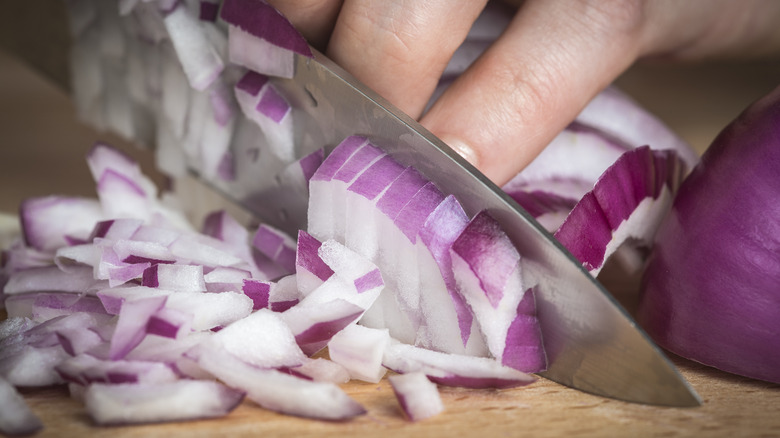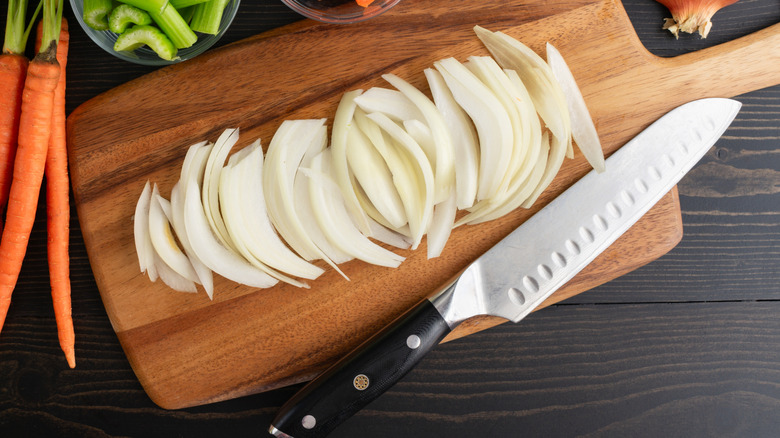Here's Exactly How To Chop Onions Without Crying, According To The Latest Research
Chopping onions is an age-old problem. Cutting them irritates your eyes and makes you cry bitter tears, but it's also hard to find a savory dish that you can't improve with some cut-up onions. What's the official, ideal way to chop onions without hurting your eyes, then? We reached out to Constantino Delnero, the chief blade officer at Seido Knives. Delnero knows a thing or two about the science of how onions work — put simply, onions release stored-up sulfur when you cut them open — and he has a few strategies for keeping those irritants away.
We asked Delnero about a recent study that suggested the teary response is related to the speed of your chop and the sharpness of your knife. To be specific, the study found that cutting onions very slowly with a very sharp knife releases fewer irritants into the air than fast cuts with a duller knife. Delnero agreed with all that, based on his own experiences, and he said: "A sharp knife cuts through the onion cleanly, while a dull blade may increase the amount of crushing. This crushing of the onion is what causes the release of more tear-producing juices." He went on to say that cutting faster may seem better because you're dealing with the onion for less time, but calm, slow knife cuts will disturb the air less and send fewer irritants toward your eyes.
Slow and sharp with your knife
Now, how can you guarantee you're working with a sharp knife? There are often debates between chefs over German versus Japanese knives, and many chefs prefer Japanese-style knives because they're made from harder steel (they're also more expensive, though). Delnero himself likes to use a Japanese santoku knife, which is like a standard chef's knife with a rounder, shorter blade. According to Delnero: "A santoku knife, in particular, is effective because its straight blade and thin profile allow for very clean, precise cuts." A well-maintained chef's knife should also work.
There are lots of different strategies for chopping onions, though, and plenty of them can be combined. For example, Delnero also suggests that a temperature change can help prevent onion tears: "One of my top tricks is to chill your onion in the freezer for 10 minutes before cutting it. Chilling the onion slows the release of sulfur compounds, which are what causes the tears." Alternatively, he recommends cutting near a fan or a breezy open window to add some ventilation, or cutting under running water to wash off the irritants as they escape into the air. Are there any strategies missing here? Well, if you're okay with looking a little silly, sometimes stuffing your mouth with bread while chopping onions can help. Measuring the speed and sharpness of your kitchen knives is, perhaps, a little more scientific than that.

